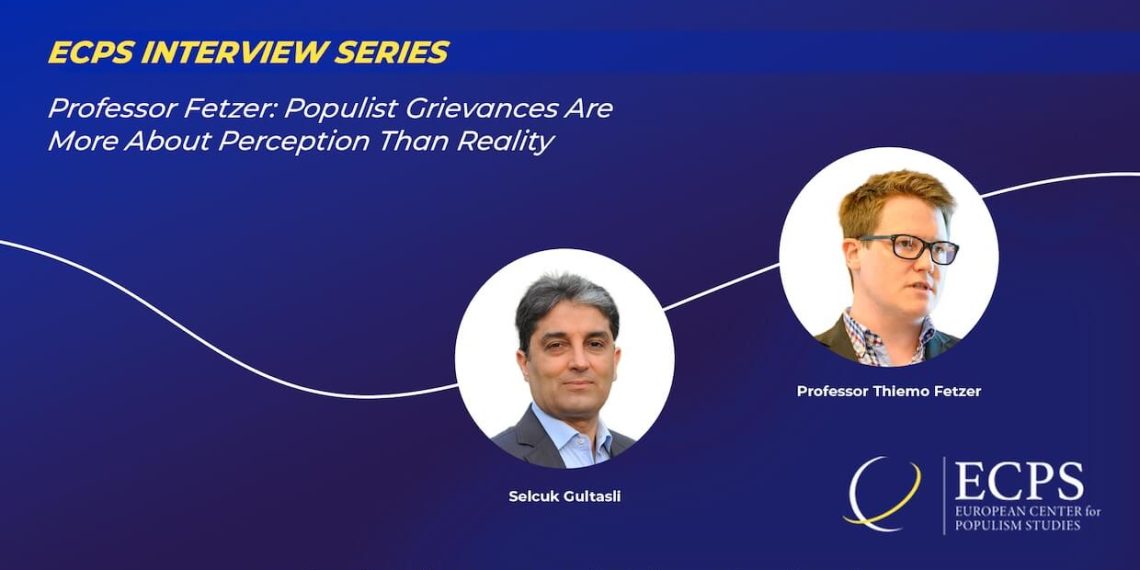In an interview with the ECPS, Professor Thiemo Fetzer argues that populist grievances are largely shaped by perception rather than lived experience. “Populism is a phenomenon of information overload,” Fetzer explains. “Many grievances amplified by populists are not grounded in demographic or economic realities but are shaped by narratives, particularly those spread through modern media.” Discussing global trade, economic inequality, and the rise of far-right movements, he warns that misinformation fuels discontent, making societies more vulnerable to populist rhetoric. From the future of the liberal order to the geopolitics of energy, Fetzer offers a data-driven perspective on the forces reshaping today’s world.
Interview by Selcuk Gultasli
In an interview with the European Center for Populism Studies (ECPS), Professor Thiemo Fetzer, an economist at the University of Warwick and the University of Bonn, argues that populist grievances are largely rooted in perception rather than actual lived experiences. However, as he warns, populists are particularly adept at exploiting these narratives for political gain.
"Populism is a phenomenon of information overload," Professor Fetzer explains. "Many grievances that populists amplify are not based on actual demographic or economic realities but are shaped by narratives, particularly those spread through modern media." He highlights how, in many cases, communities most resistant to immigration often have little to no firsthand experience with immigrants—a paradox that underscores the role of perception over reality.
Professor Fetzer’s research delves into the economic, political, and social forces driving contemporary populism. In this interview, he explores the dynamics of global trade, industrial policy, economic inequality, and geopolitical shifts, particularly in the wake of a second Trump presidency.
Discussing global trade realignments, he explains that while China has aggressively localized production and built dominance over key supply chains, the US has primarily specialized in financialization, service-sector trade, and digital technology. This has led to geopolitical tensions, as China’s strategic control over minerals and industrial supply chains threatens US economic leadership.
Regarding the rise of far-right movements like the AfD in Germany, Professor Fetzer stresses that economic grievances alone do not fully explain their appeal. Instead, he argues, populist movements often thrive on a combination of perceived cultural shifts, economic anxieties, and declining trust in institutions.
He also critiques the role of digital media in fueling discontent, stating that “the collapse of traditional media landscapes has created an environment where misinformation and sensationalized narratives shape public perception more than facts.”
Finally, addressing the decline of the liberal world order, he challenges the idea that neo-mercantilism and protectionism signal its end. Instead, he suggests that a shift toward industrial policy—particularly in the energy sector—has long been in motion.
With economic nationalism, trade wars, and geopolitical realignments defining today’s global landscape, Professor Fetzer provides a data-driven perspective on the forces shaping modern populism.


